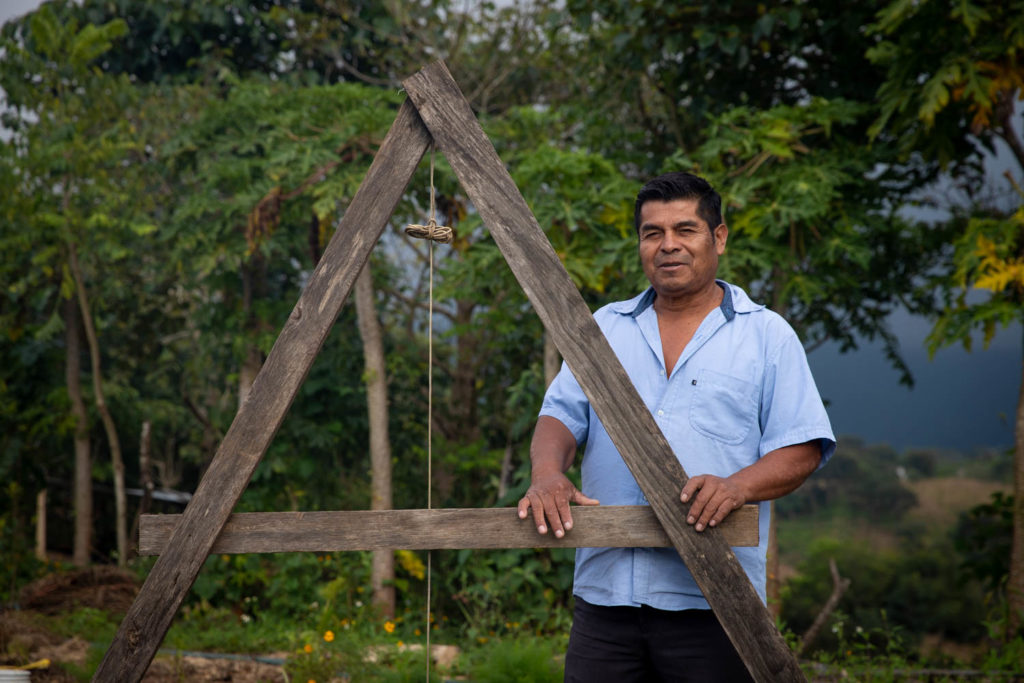
Theory is Fine, Practice is Better for Agriculture
Fausto, a doctor of alternative medicine, has been growing medicinal plants and working a plot of land his family bought five or so years ago after renting for 15 years. Their vision is to create a “forest” of organically-grown plant life – fruit trees, vegetables, medicinal herbs, and more. The techniques they’ve acquired from local partner, the Institute of Intercultural Study and Research (IESII) validate and enlarge on their vision and practices.
“We’ve learned so much we didn’t know before,” says Fausto, “such as propagation not only from seeds in seed beds, but grafting and layering: bending a branch or stem so that it roots itself into the soil. We now make our own compost, and use chili and garlic as natural insecticides.”
Another technique that was new to the father and son duo was the A-frame level, made of three sticks lashed together into an A shape. They found a wide variety of uses for it, such as measuring distances, marking out level ground to plant onions, and creating contours in the earth to stop rainwater from sluicing downhill and allowing it to soak into the ground.
“We had learned a lot of theory before with other organizations, but what we’ve really been able to do now is put things into practice, says Fausto. “I’ve really appreciated the encouragement from IESII to try things, and we’ve been seeing good results. We’re now using almost 100% organic materials. That means the food we eat tastes better, is more nutritious, we know what’s been put on it and we have less chance of getting sick from chemicals.”
“I work this land with my son, and I hope we will continue to have the strength and vitality to keep doing what we’re doing. We’re building something new, for our children and the next generation. We hope they’ll be able to continue the work we’ve started.”
Mexico Chiapas Ocosingo Program
Led by Mennonite Central Committee and Local Partner IESII
photo credit: MCC/Annalee Giesbrecht
